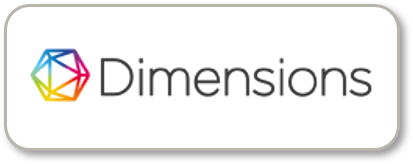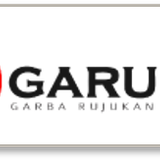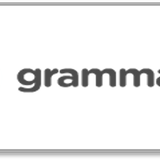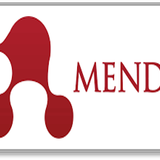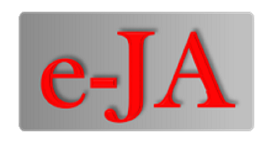Auditor's Proficiency North Sumatera: Unveiling Fraud With Skepticism
DOI:
https://doi.org/10.24912/ja.v28i2.2051Abstract
Numerous instances of Fraud frequently arise within various companies, often stemming from lapses in the professional ethics of auditors. This research explores fraudulent activities by examining the impact of auditor experience, capabilities, and professional scepticism. The chosen research focus is Public Accounting Firms in North Sumatra, specifically Medan. Employing descriptive statistical analysis with quantitative data, the research utilises the saturated sampling method with a sample of 199 respondents from a population of 25 Public Accounting Firms. Hypothesis testing results reveal a significant correlation between Auditor Experience, Auditor Capability, and Professional Skepticism in detecting Fraud. The findings also indicate that Professional Skepticism significantly influences Auditor Capability in fraud detection. Moreover, the testing results suggest that the relationship between Auditor Experience and Auditor Capability is mediated by Professional Skepticism as an intervening variable, shedding light on the complex dynamics influencing fraudulent behaviour within the auditing profession.
References
Ab Hamid, M. R., Sami, W., & Mohmad Sidek, M. H. (2017). Discriminant Validity Assessment: Use of Fornell & Larcker criterion versus HTMT Criterion. Journal of Physics: Conference Series, 890, 012163. https://doi.org/10.1088/1742-6596/890/1/012163.
Agustina, F., Nurkholis, N., & Rusydi, M. (2021). Auditors’ Professional Skepticism And Fraud Detection. International Journal of Research in Business and Social Science (2147- 4478), 10(4), 275–287. https://doi.org/10.20525/ijrbs.v10i4.1214.
Awaluddin, M., Nirgahayu, N., Wardhani, R. S., & Sylvana, A. (2019). The Effect Of Expert Management, Professional Skepticism And Professional Ethics On Auditors Detecting Ability With Emotional Intelligence As Modeling Variables. International Journal of Islamic Business and Economics (IJIBEC), 3(1), 49–67. https://doi.org/10.28918/ijibec.v3i1.1567.
Bongcales, T. E., Balunan, A., Igot, L., Laude, J. M., Mojados, J. J., & Uy, K. J. (2022). Auditors’ Professional Skepticism And Its Relationship With Their Thinking Styles. Recoletos Multidisciplinary Research Journal, 10(2), 1–17. https://doi.org/10.32871/rmrj2210.02.04.
Cheung, G. W., Cooper-Thomas, H. D., Lau, R. S., & Wang, L. C. (2023). Reporting Reliability, Convergent And Discriminant Validity With Structural Equation Modeling: A Review And Best-Practice Recommendations. Asia Pacific Journal of Management. https://doi.org/10.1007/s10490-023-09871-y.
Duckett, L. J. (2021). Quantitative Research Excellence: Study Design And Reliable And Valid Measurement Of Variables. Journal of Human Lactation, 37(3), 456–463. https://doi.org/10.1177/08903344211019285.
Freida, A. O., Mustapha, N. D. B., Aronmwan, E., Hua, J. Y. S., & Bahari, S. N. binti A. (2024). Determinants Of Auditors Fraud Detection Capability: Evidence From Malaysia. In AIP Conference Proceedings, 2951(1). https://doi.org/10.1063/5.0183235.
Hair Jr, J. F., Hult, G. T. M., Ringle, C. M., Sarstedt, M., Danks, N. P., & Ray, S. (2021). Partial Least Squares Structural Equation Modelling (PLS-SEM) Using R: A Workbook (197). Springer Nature.
Hair, J. F., Howard, M. C., & Nitzl, C. (2020). Assessing Measurement Model Quality In PLS-SEM Using Confirmatory Composite Analysis. Journal of Business Research, 109, 101–110. https://doi.org/10.1016/j.jbusres.2019.11.069.
Hanum, Z., Rahmadana, M. F., & Nasution, M. A. P. E. (2024). The Impact Of Auditor Competence And Auditor Experience On Audit Judgement, Mediated By Task Complexity, Within Public Accounting Firms In The City Of Medan. Journal of Law and Sustainable Development, 12(1), e1925. https://doi.org/10.55908/sdgs.v12i1.1925.
Iskandar, R., Ramadhan, M. S., Mansyuri, M. I., & Ramadhan, R. (2022). Determinants Of Auditor’s Ability To Detect Fraud: Internal And External Factors. International Journal of Science, Technology & Management, 3(1), 179–195. https://doi.org/10.46729/ijstm.v3i1.452.
Kertarajasa, A. Y., Marwa, T., & Wahyudi, T. (2019). The Effect Of Competence, The Effect Of Competence, Experience, Independence, Due Professional Care, And Auditor Integrity On Audit Quality With Auditor Ethics As Moderating Variable. Journal of Accounting Finance and Auditing Studies (JAFAS), 5(1), 80–99. https://doi.org/10.32602/jafas.2019.4.
La Ode, A., Wahyuniati, H., Angela, F., & Oktri, S. (2020). Auditor’s Ability To Detect Fraud: Independence, Audit Experience, Professional Skepticism, And Work Load. Russian Journal of Agricultural and Socio-Economic Sciences, 107(11), 192–205. https://doi.org/10.18551/rjoas.2020-11.23.
Luo, W., Luo, Y., Ma, Z., & Wang, R. (2019). Auditor Competencies, Organizational Learning, And Audit Quality: Spillover Effects Of Auditing Cross-Listed Clients. SSRN Electronic Journal. https://doi.org/10.2139/ssrn.3620533.
Maneejuk, P., & Yamaka, W. (2021). Significance Test For Linear Regression: How Can You Test Without P-Values? Journal of Applied Statistics, 48(5), 827–845. https://doi.org/10.1080/02664763.2020.1748180.
Noch, M. Y., Ibrahim, M. B. H., Akbar, M. A., Kartim, K., & Sutisman, E. (2022). Independence And Competence On Audit Fraud Detection: Role Of Professional Skepticism As Moderating. Jurnal Akuntansi, 26(1), 161. https://doi.org/10.24912/ja.v26i1.823.
Prianthara, I. B. T., Setini, M., & Munidewi, I. A. B. (2023). Effect Of Auditor Experience, Independence, Professional Skepticism, And Ability To Detect Fraud On Capital Spirituality Audit Results Quality As Moderating Factors. International Journal of Intellectual Property Management, 13(2), 101-129. https://doi.org/10.1504/IJIPM.2023.130461.
Putra, G. S. A., & Dwirandra, A. A. N. B. (2019). The Effect Of Auditor Experience, Type Of Personality And Fraud Auditing Training On Auditor's Ability In Fraud Detecting With Professional Skepticism As A Mediation Variable. International Research Journal of Management, IT and Social Sciences, 6(2), 31–43. https://doi.org/10.21744/irjmis.v6n2.604.
Rahim, S., Muslim, M., Larasati, I. S., & Amin, A. (2019). Red Flag And Auditor Experience Toward Criminal Detection Through Profesional Skepticism. Jurnal Akuntansi, 23(1), 47-62. https://doi.org/10.24912/ja.v23i1.459.
Ratna, T. D., & Anisykurlillah, I. (2020). The Effect Of Experience, Independence, And Gender On Auditor Professional Scepticism With Professional Ethics As Moderating. Accounting Analysis Journal, 9(2), 138–145. https://doi.org/10.15294/aaj.v9i2.25629.
Rustiarini, N. W., Yuesti, A., & Gama, A. W. S. (2021). Public Accounting Profession And Fraud Detection Responsibility. Journal of Financial Crime, 28(2), 613–627. https://doi.org/10.1108/JFC-07-2020-0140.
Sayed Hussin, S. A. H., Iskandar, T. M., Saleh, N. M., & Jaffar, R. (2017). Professional Skepticism And Auditors’ Assessment Of Misstatement Risks: The Moderating Effect Of Experience And Time Budget Pressure. Economics & Sociology, 10(4), 225–250. https://doi.org/10.14254/2071-789X.2017/10-4/17.
Shofia, M. (2019). The Effect Of Independence, Experience, And Gender On Auditor's Ability To Detect Fraud By Professional Skepticism As A Moderation Variable. Russian Journal of Agricultural and Socio-Economic Sciences, 91(7), 366–375. https://doi.org/10.18551/rjoas.2019-07.43.
Sunarmin, S., & Junaidi, A. (2022). Auditor Skill, Work Experience And Professional Skepticism On Performance Of Auditors. Ilomata International Journal of Tax and Accounting, 3(2), 183–190. https://doi.org/10.52728/ijtc.v3i2.453.
Ta, T. T., Doan, T. N., Pham, D. C., & Tran, H. N. (2022). Factors Affecting The Professional Skepticism Of Independent Auditors In Viet Nam. Cogent Business & Management, 9(1). https://doi.org/10.1080/23311975.2022.2059043.
Tjan, J. S., Muslim, M., Alimin, A., Noch, M. Y., & Sonjaya, Y. (2024). Independence, Professional Skepticism, And Audit Quality: The Moderating Role Of Audit Fees. Jurnal Akuntansi, 28(1), 40–60. https://doi.org/10.24912/ja.v28i1.1698.
Downloads
Published
How to Cite
Issue
Section
License
Copyright (c) 2024 Jurnal Akuntansi

This work is licensed under a Creative Commons Attribution-NonCommercial-ShareAlike 4.0 International License.
This journal provides immediate open access to its content on the principle that making research freely available to the public supports a greater global exchange of knowledge.

This work is licensed under a Creative Commons Attribution-NonCommercial-ShareAlike 4.0 International License







